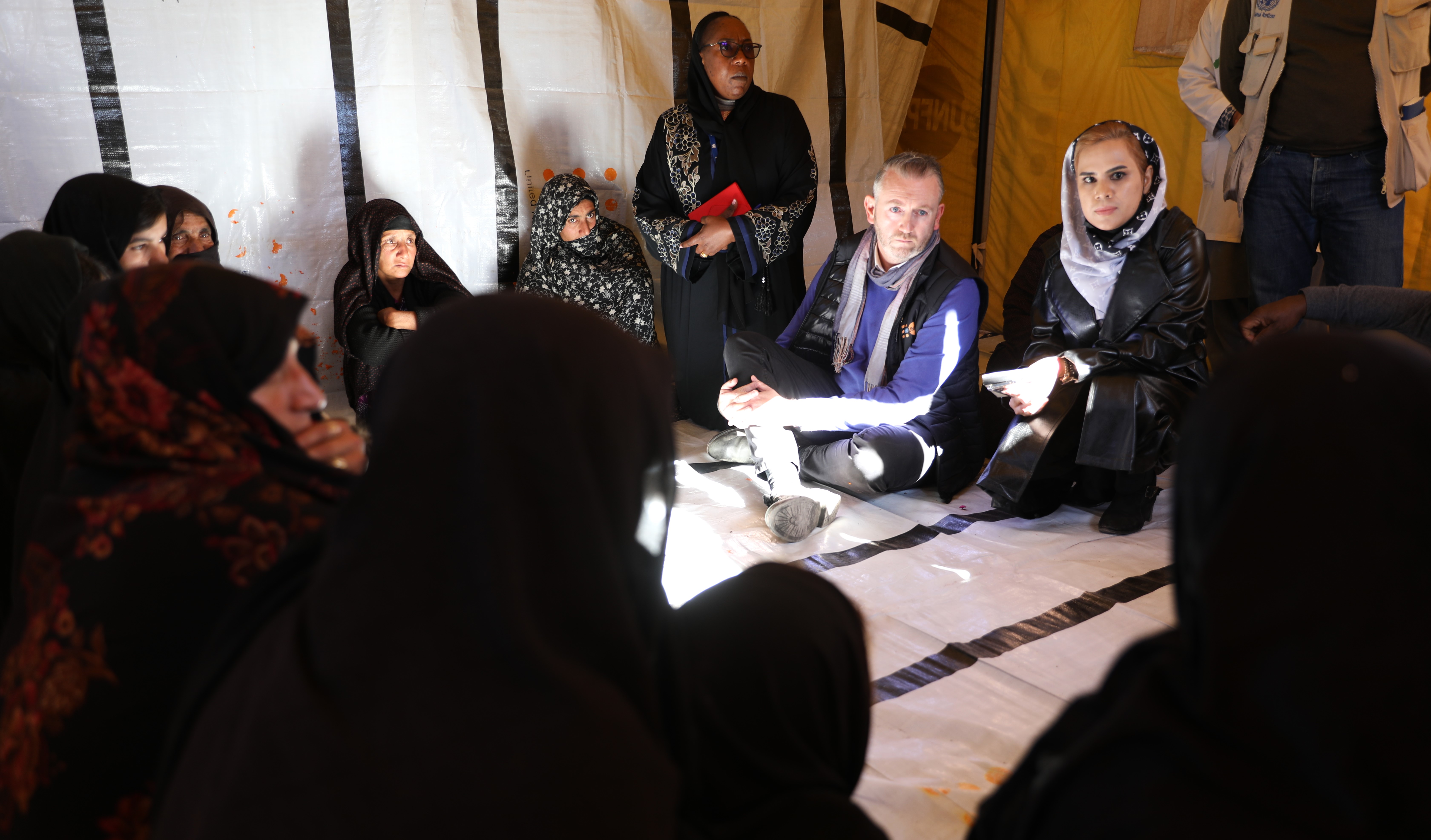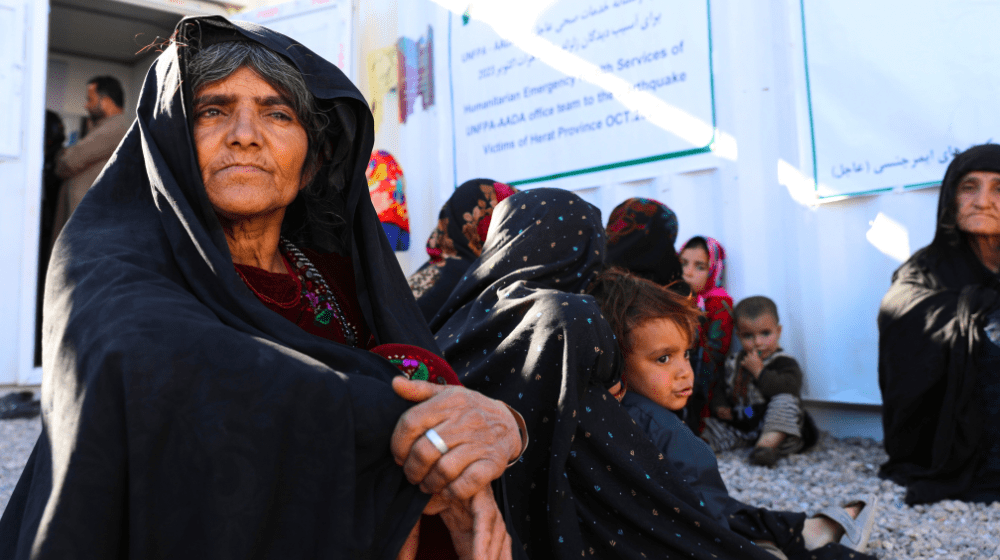Kabul, Afghanistan, 11 December 2023 – Amid the raging conflicts across the world, we should not lose focus on Afghanistan where women and girls continue to acutely suffer from the impacts of the protracted polycrisis in the country, deepened by the recent earthquakes in Herat and the influx of the forced return of thousands of Afghans from Pakistan, highlighted Mr. Pio Smith, UNFPA Regional Director for Asia and the Pacific, concluding a five-day mission to Afghanistan.
“UNFPA is supporting more than 700 health facilities across Afghanistan that are reaching around 700,000 people every month. While that is undeniably saving hundreds of lives, it is nowhere near what is needed to ensure that every Afghan woman and girl receives essential sexual and reproductive health services, including psychosocial support to help them cope and rebuild their lives,” he remarked.
Lifesaving maternal health services and supplies
Over the last two months, over 340,000 forced Afghan returnees have crossed over from Pakistan at the borders at Torkham and Spin Boldak on the east and south-east of Afghanistan. Among the returnees are hundreds of pregnant women – and pregnant girls – many of whom require urgent and life-saving maternal health services.
At the Torkham reception center in Nangarhar province, UNFPA, together with its partners, have set up a mobile health clinic comprising doctors, midwives, and counsellors to provide 24/7 emergency services to ensure women and girls receive the immediate care they need.
Due to prolonged and obstructed labour that often takes place when quality maternity services are inaccessible, women can develop a fistula – one of the most serious and tragic childbirth injuries. While a fistula physically disables women and girls with an uncontrollable bladder, it is also a mental health condition due to the stigma these women suffer, causing them further suffering, distress and ostracisation. The UNFPA-supported Malalai Maternity Hospital, based in Kabul, is one of only three hospitals in Afghanistan providing free surgery to women requiring obstetric fistula repair.
Critical psychosocial support for women and girls
In the west of Afghanistan in Zindajan District, Maryam waits for her turn to speak with a UNFPA-supported counsellor as she carries the immense grief of losing her 20-year-old daughter during the 6.3 magnitude earthquake that destroyed her community on 7 October. Maryam is one of the 1.6 million people affected by the series of earthquakes that hit the Herat Province.
Within 72 hours, UNFPA set up tents to provide immediate maternal health and psychosocial support on the ground. Today, these tents are replaced with a fully equipped maternity unit providing normal and emergency Cesarean-section delivery services, as well as counselling and mental health support for women and girls to help them cope with the grief of loss as they strive to rebuild their lives.

“Many of those affected, including pregnant women, have physical injuries from the earthquakes. Beyond the physical scars, there are a lot of mental wounds. Many, sadly, are feeling desperate and suicidal. These women and girls are suffering – they are suffering because they have lost their families, they have lost their homes, they have lost their livelihoods – and they are in dire need of psychosocial support to help them cope and to help them rebuild”, said Mr. Smith, reflecting on his interactions with the women and girls in Zindajan.
Young people are a beacon of hope
As Afghans continue to grapple with deepening levels of poverty and a growing infringement on their rights, the determined energy, spirit, and ideas of young people bring hope for a more resilient and brighter future.
Meeting with young Afghan advocates, many of whom often operate in secrecy out of fear of retaliation, Mr. Smith highlighted that young people are at the front and center of UNFPA’s work, particularly in humanitarian settings, and he urged the young people to continue their spirit of volunteerism. He assured them of UNFPA’s continued support to engage and to learn from youth, noting that their engagements help strengthen the impact and reach of UNFPA’s work in the country.
“The young people of Afghanistan give me immense hope and serve as an inspiration for the international community to recommit and to re-engage. My message to Afghan youths is that the UN is with you - to deliver for you, to listen to you, and to rebuild with you”, said Mr. Smith, noting that he leaves the country with a renewed sense of purpose and commitment to serving the women and girls of Afghanistan, no matter what.
NOTES TO EDITOR
Download photos and videos
For more information:
Randima Jayasinghe, Communications & Resource Mobilization Specialist, UNFPA Asia-Pacific Regional Office, Bangkok, Thailand: jjayasinghe@unfpa.org
Arlene Alano, Communications Specialist, UNFPA Country Office, Kabul, Afghanistan, alano@unfpa.org


